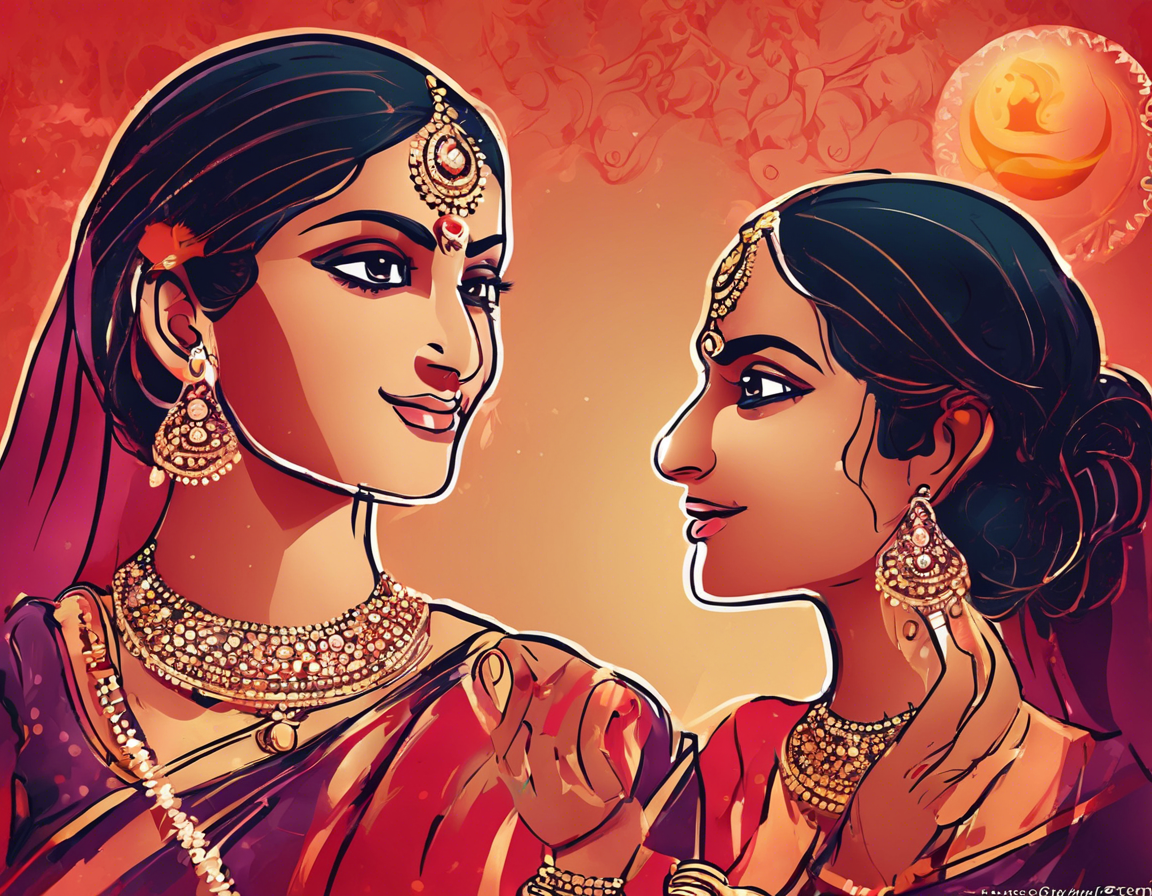Introduction:
Every year, the Hindu festival of Karwa Chauth brings together married couples in a celebration of love, devotion, and prayer. This day-long fast observed by married Hindu women for the well-being and longevity of their husbands is a significant cultural and religious event. In this comprehensive guide, we will delve into the origins, traditions, significance, rituals, and modern-day celebrations of Karwa Chauth.
Origins and Significance:
Karwa Chauth is a traditional Hindu festival celebrated mainly in North India. It falls on the fourth day after the full moon in the Hindu lunisolar calendar month of Kartik. The word “Karwa” means earthen pot used to store wheat and “Chauth” means the fourth day. This day symbolizes love, devotion, and the bond between married couples.
Legend has it that the ritual of Karwa Chauth originated with the story of Queen Veervati and her severe penance to save her husband’s life. When her husband’s life was in danger, she observed a strict fast and prayed for his well-being. The tradition soon gained popularity, and today, it is observed by married Hindu women across India.
Rituals and Traditions:
The day of Karwa Chauth begins before sunrise, with women consuming a meal called “Sargi” prepared by their mother-in-law. Throughout the day, they observe a Nirjala (without water) fast, refraining from food and water until they spot the moon in the evening. The fast is broken after offering prayers to the moon, followed by the husband feeding his wife the first morsel of food and offering her water.
Women dress up in traditional attire, often in bridal wear, apply mehndi (henna) on their hands, and adorn themselves with jewelry. They gather in the evening for the Karwa Chauth puja, where they sing songs, exchange stories, and participate in the rituals. The fast is broken after sighting the moon and offering water to the moon.
Modern-Day Celebrations:
While traditionally a North Indian festival, Karwa Chauth is now celebrated across India and by the Indian diaspora worldwide. In contemporary times, the festival has evolved with modern influences. Women share their Karwa Chauth preparations and celebrations on social media, emphasizing the bonding experiences and the romantic significance of the day.
Karwa Chauth is not just a religious observance but a celebration of love and togetherness, where couples exchange gifts, dine together, and express their love for each other. Many husbands also fast along with their wives as a gesture of solidarity and support.
Significance of Karwa Chauth in Today’s Context:
In a fast-paced world where relationships are often tested by various challenges, Karwa Chauth serves as a reminder of the importance of love, loyalty, and sacrifice in a marriage. It symbolizes the deep-rooted traditions of Indian culture and the enduring bond between husband and wife.
FAQs:
1. Is Karwa Chauth only for married women?
Yes, Karwa Chauth is a festival observed exclusively by married women for the well-being and longevity of their husbands.
2. Can unmarried women observe Karwa Chauth?
While the traditional Karwa Chauth fast is meant for married women, unmarried women can also observe it for their future spouses or as a vow for marital bliss in the future.
3. Are there any exemptions from fasting on Karwa Chauth?
Pregnant women, individuals with health conditions, and elderly women are often exempted from observing the Karwa Chauth fast.
4. What is the significance of the moon in Karwa Chauth rituals?
The sighting of the moon on Karwa Chauth symbolizes the successful completion of the fast and the blessings being showered on the husband by the wife.
5. How has modernization affected the celebrations of Karwa Chauth?
Modern influences have led to the festival becoming more publicized and commercially driven, with social media playing a significant role in showcasing the rituals and celebrations of Karwa Chauth.
6. What are some traditional gifts exchanged on Karwa Chauth?
Traditional gifts exchanged on Karwa Chauth include bangles, sarees, jewelry, sweets, and cosmetics, symbolizing love and affection between husband and wife.
7. How does Karwa Chauth promote the strengthening of marital bonds?
Karwa Chauth emphasizes the commitment, love, and sacrifice inherent in a marriage, fostering a sense of togetherness and understanding between couples.
8. Can non-Hindus participate in Karwa Chauth celebrations?
While Karwa Chauth is a Hindu festival, people of all faiths are welcome to participate in the celebrations, fostering a spirit of unity and cultural exchange.
In conclusion, Karwa Chauth is not just a festival but a celebration of love, commitment, and togetherness that transcends time and tradition. The rituals and customs associated with Karwa Chauth emphasize the deep-rooted values of Hindu culture and serve as a reminder of the enduring bond between husband and wife, making it a truly unique and cherished celebration of love.
